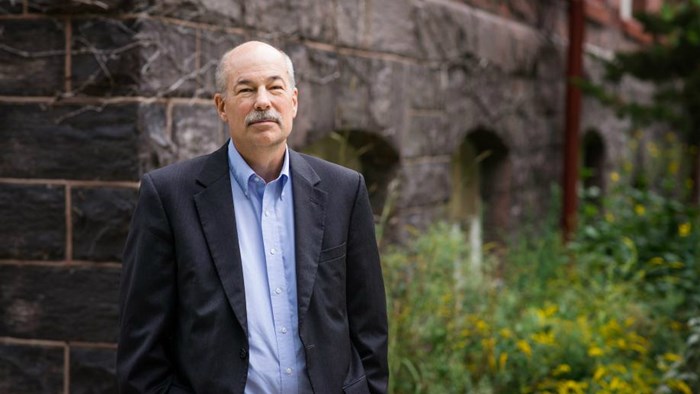
InterVarsity Christian Fellowship (IVCF) can set and enforce hiring practices based on its Christian faith, the Sixth Circuit Court of Appeals ruled on Thursday. Grounded heavily in the precedent set by the US Supreme Court’s significant Hosanna-Tabor decision in 2012, the verdict maintains that IVCF could legally fire an employee headed for divorce.
In 2013, Alyce Conlon, a former spiritual director at IVCF, filed a lawsuit challenging her firing. She was put on paid leave in 2011 after informing her supervisor she was considering divorce, and terminated that December for what she alleges was "failing to reconcile her marriage." (Her husband filed for divorce the following month.) Conlon claimed that two of her male colleagues in similar situations had not received the same treatment.
“Because IVCF is a religious organization and Conlon was a ministerial employee, IVCF’s decision to terminate her employment cannot be challenged under federal or state employment discrimination laws,” ruled the court. “It matters not whether the plaintiff is claiming a specific violation under Title VII or any other employment discrimination statute.” The court noted:
The parties point to no historical example in which the founding generation permitted any arm of the federal government—including the judiciary—to order a religious organization to accept or retain in a ministerial position a person whom the organization deemed unfit for ministry. To the contrary, the historical practice has always been that the government cannot dictate to a religious organization who its spiritual leaders would be.
In Hosanna-Tabor, the Supreme Court ruled that a Lutheran school teacher was a "minister" who could not sue the church that fired her in 2005, on the basis of the “ministerial exception,” which allows religious institutions to hire and fire employees according to their religious criteria. While the Sixth Circuit acknowledged that IVCF was not a church, it granted faith-based organizations the same rights.
“It is undisputed that InterVarsity Christian Fellowship is a Christian organization, whose purpose is to advance the understanding and practice of Christianity in colleges and universities. It is therefore a ‘religious group’ under Hosanna-Tabor,” the court stated.
Further, the Sixth Circuit ruled that while Conlon did not officially hold the title of minister, the organization did not need to specifically designate its employees as such in order to qualify for the exception.
Instead, “courts need only determine whether the wording of the title conveys a religious—as opposed to secular—meaning,” the court stated.
The court also ruled that contrary to Conlon’s argument that IVCF had waived its ministerial exception, the “exception is a structural limitation imposed on the government by the Religion Clauses, a limitation that can never be waived.”
Religion Clause highlights one judge's concern that the ruling is too broad:
Our decision today does not require us to decide whether a religious employer could enter into a judicially-enforceable employment contract with a ministerial employee not to fire that employee on certain grounds (such as pregnancy). Judicial enforcement of such a contract might unduly interfere with the independence of religious institutions, but barring religious institutions from offering such a legally binding guarantee might make it harder for some religious institutions to hire the people they want.
“These conclusions demonstrate profound respect for our constitutional structure and for the First Amendment,” wrote David French, an attorney for the American Center for Law and Justice, which represented IVCF in this case. “It is simply not the business of the government to determine who may or may not serve as a minister of the Gospel—or a minister of any other faith."
InterVarsity told CT:
InterVarsity is thankful that the Sixth Circuit Court’s decision in the case of Conlon v. InterVarsity Christian Fellowship affirms the distinctive legal identity of religious organizations consistently expressed in our country's history. InterVarsity also affirms its deep belief that both women and men should be treated fairly and justly. We have a long track record of valuing the role of women in Christian ministry. In this situation, InterVarsity believes it made every effort to resolve differences in perspective with appropriate grace and respect. In respect for all parties, as an organization we do not publically discuss the specifics of any personnel situations
Southern Baptist Theological Seminary president Al Mohler called the ruling a “major win this week on religious liberty.”
“One of the things that we as Christians need to think about when we see a headline like this is what the opposite might have meant,” he said. “If indeed, the court had found against InterVarsity Christian Fellowship and for the woman who sued the organization, it would have meant that a Christian organization can’t operate on its own Christian principles in terms of hiring those who will actually teach and lead those very organizations.“
Joe Carter examines the ruling for the Acton Institute.
In 2013, CT reported that, despite the Hosanna-Tabor precedent, teachers were still suing Christian schools over sex standards, including Dias v. Archdiocese of Cincinnati, where a lesbian was fired after undergoing artificial insemination. CT found that experts predicted similar lawsuits would continue to grow, but also that Christian schools were likely to continue their winning streak.
In 2011, World Vision also won a significant legal victory for parachurch ministries after its hiring practices were also challenged. The Supreme Court declined to hear World Vision’s hiring lawsuit, which allowed an August 2010 decision by the Ninth Circuit Court of Appeals to stand in favor of World Vision and against three employees who were fired after the organization concluded that they did not believe that Jesus Christ is fully God.
World Vision was a "religious organization" and therefore exempt from the rules on hiring practices that Congress set down in the 1964 Civil Rights Act, mainly because it is a nonprofit entity which self-identifies as religious, Ninth Circuit Judge Diarmuid F. O'Scannlain argued.
In the most in-depth study to date of gender parity in evangelical organizations, InterVarsity was found to be an exceptional advocate of women leaders compared to other organizations.

Support Our Work
Subscribe to CT for less than $4.25/month

















